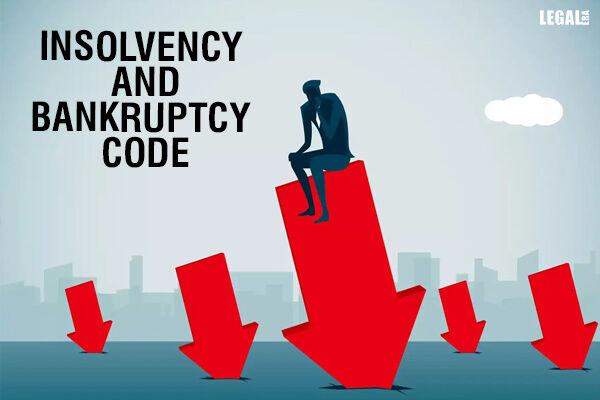
NCLAT Reinstates JC World Promoters’ Eligibility; Slams NCLT for Ignoring Evidence and Upholds CoC’s 100% Approval of Resolution Plan
Introduction
The National Company Law Appellate Tribunal (NCLAT), New Delhi, set aside the National Company Law Tribunal (NCLT) order which had declared the promoters of JC World Hospitality Pvt. Ltd. ineligible under Section 29A of the Insolvency and Bankruptcy Code, 2016 (IBC), and invalidated their resolution plan. The appellate tribunal held that the NCLT erred in interpreting the provisions of Section 29A and failed to appreciate the documentary evidence establishing the eligibility of the promoters. It further ruled that the approval of the promoters’ resolution plan by the Committee of Creditors (CoC) was valid and consistent with Section 25A(3A) of the IBC. The ruling reinforces that the commercial wisdom of the CoC remains paramount and that technical misinterpretations or selective evaluation of evidence by the Adjudicating Authority cannot override due process under the Code.
Factual Background
JC World Hospitality Pvt. Ltd., an MSME engaged in real estate development, underwent the Corporate Insolvency Resolution Process (CIRP). The promoters — Dr. Vijay Kant Dixit, Ms. Rita Dixit, and Ms. Vasudha Dixit — had submitted a resolution plan that was approved by the CoC. Subsequently, Amrapali Fincap Ltd., a competing resolution applicant, challenged the eligibility of the promoters, arguing that they were disqualified under multiple clauses of Section 29A of the IBC, including clauses (c), (e), (g), (i), and (j). The NCLT, New Delhi, in its order dated 22 July 2025, accepted Amrapali Fincap’s objection, declared the promoters ineligible, set aside the CoC-approved plan, and directed consideration of the rival applicant’s plan instead.
Procedural Background
Aggrieved by the NCLT’s decision, the promoters, the Resolution Professional (RP), and a homebuyer (financial creditor in class) filed appeals before the NCLAT, New Delhi.
The NCLAT heard the matter along with the appeal filed by Amrapali Fincap Ltd., which supported the NCLT’s findings. The appellants argued that the NCLT ignored vital evidence, including communications from the Ministry of Corporate Affairs (MCA) confirming removal of disqualifications, and erred in holding that the resolution plan violated IBC regulations.
Issues
1. Whether the NCLT erred in declaring the promoters ineligible under Section 29A of the IBC.
2. Whether the approval of the resolution plan by the CoC was valid under Section 25A(3A) of the IBC.
3. Whether the NCLT correctly applied the law regarding the submission of performance bank guarantees and disclosure obligations under CIRP Regulations.
Contentions of the Parties
Appellants’ Submissions: The promoters argued that their disqualification under Section 29A(e) was wrongly determined since the MCA had removed their names from the list of disqualified directors. The CoC’s approval of their plan with 100% voting share was valid as per Section 25A(3A), given that more than 50% of the financial creditors in a class had voted in favor. The performance bank guarantee was validly furnished by an identified investor, Rishikesh Hire Purchase & Leasing Pvt. Ltd., as expressly allowed under the resolution plan.
The NCLT selectively ignored evidence, accepting submissions from the rival bidder but disregarding relevant records from the successful resolution applicant.
Respondents’ Submissions (Amrapali Fincap Ltd.): The respondents argued that the promoters were ineligible under multiple clauses of Section 29A, being connected persons with past defaults and alleged non-disclosures. They contended that the PBG deposit by a third party violated Regulation 36B(4A) of the CIRP Regulations. It was also alleged that the plan failed to disclose pending criminal proceedings as required under Regulation 38(3).
Reasoning and Analysis
The bench of Justice Ashok Bhushan and Mr. Barun Mitra (Technical Member) held that the NCLT erred both procedurally and substantively in its findings. It observed that the CoC’s decision was consistent with Section 25A(3A) since over 50% of creditors in a class voted in favor, thus making the 100% vote by the authorized representative valid. The communication from the MCA confirming removal of the directors’ disqualification should have been accepted as conclusive proof under Section 29A(e). The performance bank guarantee submitted by the investor was validly compliant since the plan explicitly provided for it, negating any violation of Regulation 36B(4A). The NCLT had ignored critical evidence and relied selectively on submissions from the unsuccessful bidder, Amrapali Fincap, whose objections were found to be repetitive and obstructive. Regarding alleged non-disclosure of criminal proceedings, the Tribunal clarified that Regulation 38(3) was amended in 2018 and no longer required disclosure of such proceedings. Emphasizing judicial restraint in reviewing the CoC’s commercial wisdom, the NCLAT stated that technical misreadings cannot override a validly approved resolution plan.
Implications
The ruling reaffirms that NCLTs must exercise caution before overturning CoC-approved resolution plans, especially when procedural compliance and eligibility have been established. It underscores that Section 29A disqualifications must be interpreted narrowly and that MCA communications hold evidentiary weight in determining director eligibility. Moreover, the decision strengthens the jurisprudence that approval of the CoC represents commercial wisdom beyond judicial interference, ensuring certainty and efficiency in insolvency proceedings.
In this case the appellant was represented by Mr. Krishnendu Datta and Mr. Abhijeet Sinha, Sr. Advocate with Ms. Prachi Johri, Ms. Kamal Naini Sharma and Ms. Mrigangi Parul, Advocates.